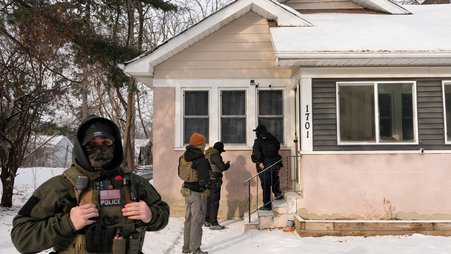
On Wednesday, Freedom of the Press Foundation and a coalition of 20 press freedom organizations launched the US Press Freedom Tracker, which will comprehensively document press freedom violations in the United States, including leak prosecutions.
“What I want to do is I want to fucking kill all the leakers,” short-lived White House communications director Anthony Scaramucci told the New Yorker last week.
While Scaramucci was let go on Monday before his official tenure even started, there’s no doubt his tirade against leakers fit perfectly with the Trump administration’s hostile views toward the kind of public-interest journalism that has become a thorn in the side of his administration. Nor is there any doubt that the coming leak crackdown by the Justice Department threaten how journalists will be able to operate in the coming months and years.
Leakers and whistleblowers within the U.S. government — coupled with aggressive investigative journalism — have given the public a revealing view inside the Trump White House and it's is one of the only things holding the administration accountable. The publishing of leaks has led to White House dismissals, reversals of dangerous policies, investigations, and a dip in public support for the administration.
This is partly why hardly a week has gone by without Trump railing against “ILLEGAL LEAKS!” on Twitter, or without a story warning about all the leak investigations that will soon be proliferating. The signs that a crackdown is coming have been clear for months. Former Press Secretary Sean Spicer reportedly inspected White House employees’ phones for encrypted messaging apps back in February. Federal employees, according to Politico, are now terrified that they’ll be the next ones under investigation. Trump even reportedly told ex-FBI director James Comey to start putting reporters in jail to root out the leaks.
While the Trump administration has publicly announced only one leak prosecution, it’s almost guaranteed that more are on the way. While Trump publicly fumed about Attorney General Jeff Sessions’ role in the Russia investigation, he is also reportedly furious that Sessions hasn’t brought more leak cases. As if on cue, the Justice Department indicated last week that it would announce a string of investigations this Friday.
It’s true that the Trump Justice Department’s actions so far pale in comparison to the eight leak prosecutions brought by the Obama administration — a period which saw more convictions of journalists’ sources than in all other presidential administrations combined.
But it’s early days for the Trump administration. Many of the Obama cases occurred during his first term and did not immediately garner a lot of media attention. And unlike during the Obama years, when the Justice Department acted as if it never intended to bring a record number of prosecutions, Trump’s Justice Department is loudly proclaiming that it intends to concentrate resources on ramping up leak cases and even prosecute publishers — a grave threat to press freedom.
Journalists cannot do their job without sources willing to talk with them — sources that often put their livelihoods at risk in order to get information to the public. And the coming leak crackdown has the potential to upend accountability journalism in the Trump era.
During the Obama administration’s first term, national security reporters were vocal about the damage that Obama’s Justice Department was doing to the journalism profession by going after so many whistleblowers and leakers. Sources not only quickly dried up due to the chilling effect, but journalists themselves came under electronic surveillance and were subpoenaed, and even faced the specter of prosecution — all terrifying prospects that could only get worse under the current president, who has not hidden his contempt for the media.
While it’s too early to tell exactly how far the Trump administration will take the Espionage Act, the U.S. Press Freedom Tracker will be there, comprehensively documenting all of its attempts to silence reporters and their sources.



